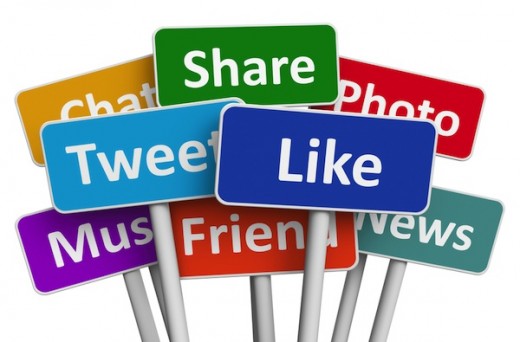The Influence and Effects of Social Media on Society
Social Media

Negative effects of social media on society
Being connected is like drinking water for some; it is a necessity. Smartphones, laptops and tablets – from which social media is often used - are ubiquitous. In the western world at least, it is a rarity for a person under the age of around 40 to not have at least one of the aforementioned devices.
To witness the extent to which these devices, and social media, have immersed and controlled people, one just needs to go onto a bus or train in the UK. Generally, there will be very few conversations, and many heads will be faced downwards staring at a screen of some sort, more often than not, engaged in social media. To at least some degree, everyday communication and interaction has been lost because of social media.
If there is any social group which has been affected and influenced by social media, it is teenagers and young adults. Indeed they are the real “social media generation”. A life without social media would be unthinkable to many young people. As alluded to before, the way social media can connect young people globally is a truly positive aspect of social media. Despite this, social media undoubtedly has negative effects on society too.
Social media has made some teenagers and young adults obsessed with validation and acceptance. A common theme of a young person’s use of social media is the posting of pictures in the hope of getting approving comments. A constant striving for acceptance, validation and attention can only lead to problems in the long-run, and be unhealthy for society at large.
One of the most averse effects of social media has been the emergence of cyber-bullying, which is especially common amongst teenagers. Cyber-bullying allows individuals to post cruel comments on people’s personal social media pages, which anybody can view. Cyber-bullying is particularly troublesome because of the nature of it. Cyber-bullies, whilst sitting behind a computer screen, can post a multitude of vile and abusive comments, usually without the fear of any real repercussion for their actions. In an everyday situation, the severity of the abuse would almost certainly not be as severe.
People who have been victims of cyber-bullying often have deep mental scars if the abuse has been severe, and their lives can be ruined. Bullying may lead to self-harm and loathing, and in severe cases, even suicide. These are real problems with social media which remain prevalent in today’s society.
Overusing social media can result in an unhealthy dependence on it, which can lead to isolation and real psychological issues. With its never-ending novelty and content, social media can become extremely addictive. Studies have been conducted which highlight that an overuse of social media can lead to anxiety issues, feelings of inadequacy and depression. One study stated that when people increased their use of Facebook, their general feeling of well-being declined.[i]
Social media can make people become insular and withdrawn. Some may replace communicating over social media with real-life communication and socialising, which is a worrying trend. Humans are social animals, and as such, we need real-life interactions to remain healthy.
Communication through social media is often wholly different to actual real-life communication. In online conversations it is rare to actually speak at length and discuss at length. Take for example a tweet which can only contain 140 characters, can anything really substantial be said with such few characters?[ii]
Not only can the content of online and real-life communication be different, the actual style of communication in itself can be poles apart. Frequent social media use may negatively affect a person’s social and communication skills, and impact on how they interact with society and the world around them. Body language, tone of voice and manners are all facets of real-life communication which virtual communication almost always lacks. Communication through social media should not be a replacement for real-life communication. Individuals may begin to create, sometimes unknowingly, an online and offline persona.
The isolation some individuals have due to overusing social media may not even be apparent to them. There can be a blurring of the lines of who is actually a friend. Somebody may have thousands of friends on social media sites such as Facebook, but the majority of these “friendships” are actually meaningless, and these “friends” are actually strangers. If social media is replacing somebody’s real-life communication, social media is actually causing people to neglect their real relationships and friendships, which in turn can make people feel lonesome.[iii]
Another negative facet of social media is the invasion of privacy. Individuals, corporations and governments may use people’s social media pages to collate information, and essentially spy on them. For instance, last year, whistleblower Edward Snowdon leaked that the American National Security Agency conducts surveillance of social media in America. Furthermore, companies will often use personal social media accounts to gather information, gaining tiny advantages over competitors, all at the bereft of people’s privacy. What is more, social media can be fertile ground for individuals with more sinister intentions, such as stalkers. Realistically, not an awful lot can be done about this. Invasion of privacy may be the price people have to pay in using social media. Using a program like Total System Care may help identify and remove tracking cookies used by online spies to track users.
[i] <http://psychcentral.com/lib/the-anxiety-of-facebook/00019448>
[ii] <http://worldissuesnz.blogspot.co.uk/>
[iii] <http://www.teenink.com/nonfiction/academic/article/485925/The-Effects-of-Social-Networking-upon-Society/>
[iv] <http://worldissuesnz.blogspot.co.uk/>



